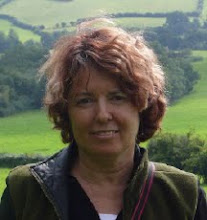"the faint hope line"
 Photo: Jabley
Photo: JableyI, and about 10 other hopefuls, stood on a staircase at the Harbourfront Centre, in what the gentleman behind me called "the faint hope line". We were waiting, with quiet expectation, for the possibility that somehow the powers-that-be would allow us into the sold-out Joan Didion reading.
Logical entreaties -- "you could let us slip in the back, we won't take up much room", were answered with logical responses -- "we've already added extra rows."
But, one by one, as the reading began, the powers-that-be found tickets to release, and all of us, and one or two latecomers, had our hopes answered.
I had read Joan Didion's The Year of Magical Thinking when I ostensibly bought it for my stepmother for her birthday. Didion's memoir, for which she recently won the U.S. National Book Award, is about the year following the sudden death of her husband of 40 years, a year in which their only child, a grown daughter, was critically ill. Since then, sadly, their daughter has died as well.
Having had both of my parents pass away in the last year, and my stepmother having lost her husband of 40 years, I felt the book was a must-read. I was right.
But knowing Didion through this book, and The White Album, and having seen various photos of her, where she looks frail and ghost-like, I was surprised to find her girlish, somehow youthful, an evergreen spirit.
Despite a writing persona that cries out depression or detachment, her voice was full of humour and light, as she recalled how her husband, the writer John Gregory Dunne, had to constantly assure people that she was not "depressing".
And she was not.








